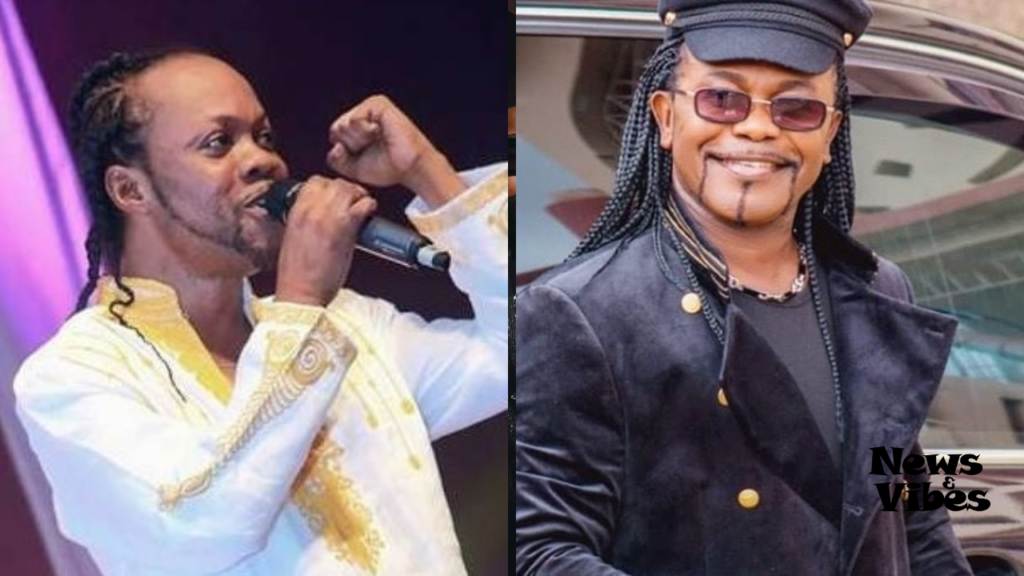Ghanaian music in the late 80s and 90s was dominated by legendary duos and solo acts, and one of the most memorable groups was the Lumba Brothers, made up of Daddy Lumba and Nana Acheampong.
Formed in the late 1980s, the duo released their first song, *”Yɛɛ yɛ aka akwantuo mu,”* in 1988/89, marking the beginning of what many believed would be a long and fruitful partnership.
However, rumours of a fallout between the two musicians began to circulate, leading to their split.
While the specifics of their separation have never been fully disclosed, speculation has lingered for years.
Many believe the rift became public when Nana Acheampong released his hit song “Nanka ɛbɛyɛ dɛn” in 1994/95, with listeners interpreting the lyrics as subtle jabs aimed at his former bandmate, Daddy Lumba.
In the song, Nana Acheampong sings:
“Me ne woa na ɛyɛ adwuma baako
Ɛkaa wo nko anka medeɛ nsei
Nana Nyame nso mpɛ bɔnee
W’ahyira hyira me ama no aboro so.”
This verse was perceived by many as a direct reference to Lumba, accusing him of wishing for his downfall despite their shared success.
Fans speculated that Acheampong was addressing tensions between the two and highlighting his belief that divine blessings had elevated him beyond Lumba’s expectations.
A couple of years later, in 1996/97, Daddy Lumba released his song “Sɛsɛɛ wo see,” which many believed was a response to Nana Acheampong’s accusations.
In one of the key lines, Lumba sings:
“Wonnim yɛ aa yɛ ma yɛnhwɛ
Na gyae nsɛm keka
Wo baa yɛ yɛ huu wo ooo.”
This was interpreted as Lumba dismissing the claims made against him, urging people to stop spreading falsehoods and reminding Acheampong of their shared history.
Interestingly, both songs began by referencing women, a common theme in their music.
However, fans and critics alike focused on the perceived lyrical ‘shots’ exchanged between the two former bandmates, fueling rumours of a deep-seated rivalry.
The Lumba Brothers’ fallout remains one of the most iconic feuds in Ghanaian music history, with the songs *”Nanka ɛbɛyɛ dɛn”* and *”Sɛsɛɛ wo see”* often viewed as key moments in their respective careers.
Despite the tension, both artists continued to thrive as solo performers, solidifying their legacies as two of Ghana’s most influential musicians.

